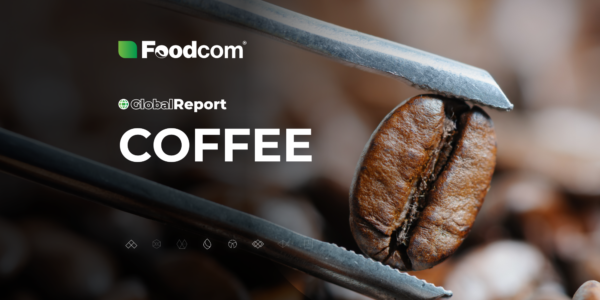Резюме
Оглавление
As we know, in the first quarter of 2022, we experienced inflation in the dairy market that was present in the supply chains and milk production. So the question is will the market return to stability? Experts do not seem to be worried, because the supply of milk is already tightening, therefore, demand for dairy products is likely to increase. Read more to get the latest updates and insights on the global dairy market. With us, you’ll never miss a thing!
SMP prices in all three EU reference countries—Germany, France and the Netherlands slightly changed this week. Producers remain focused on meeting contractual obligations. Uncertainty in the global food market makes it difficult to predict future trends for SMP.
The stable situation of FCMP on the market continues with this week. As previously, there is no sign of visible price decline despite rising fat prices. Sustained domestic demand and low inventories in Europe supported world market prices.
At the end of the 2nd quarter, a quantity of SWP had been accumulated. As a result, it goes to market at a price lower than expected sales, in order to get rid of goods that must be booked in Q2 2022. Nevertheless, producers keep their rates quite high for the next half of the year. As for feed SMP, we can observe significant pressure on feed quality whey, due to increased demand and large supply of material in the market.
Market for WPC returns to regularity, gaining some more interest. Buyers are aware of the geopolitical circumstances affecting WPC 80 Instant and the product is less visible for the Q3 and Q4 period. Buyers are looking for the product for this period in the phase when the lecithin is no longer available on the market.
After a moment of uncertainty in the market for butter, we saw that the price of butter returned to a norm throughout April. Fresh products are relatively hard to get. We see a tendency for butter to be offered above whey butter, and we notice priced to follow a peak. These commodities are offered at alevel surpassing the cost of production of first quality sweet butter. This appears especially in Central Eastern Europe. International butter quotations have risen the most, according to the FAO Dairy Price Index, which can be caused by the current shortages of sunflower oil and margarine.
Cheese is waiting for prices to ease up. Since it is a fresh product, it cannot wait on the shelves as long as powder. For the product to be at its best quality, it has to be delivered to the customer quickly. Right now, products made five or even six weeks after the production date are still visible on the shelves.
We can see acceleration in the price of cream, which directly translates into butter rates. This also affects buyers who schedule supplies ahead at the beginning of the year when prices were rising due to the massive culling and cost increases. The cream market is characterized by seasonality, and with warmer weather this can occur again.
After several weeks of decline, cream and SMC recovered last week.There is not much liquid available like we saw in the previous week, and also in Europe, we notice the prices for spot milk have begun to rise. To maintain production capacity, milk prices are likely to continue their upward trend in the second half of the year. We cannot attempt to predict how much commodity will be needed until demand adjusts to the reality of the affect of inflation on trade rates. Continued seasonal and annual growth in milk production is expected in Eastern Europe.
SMP
SMP prices in all three EU reference countries—Germany, France and the Netherlands slightly changed this week. Producers remain focused on meeting contractual obligations. Uncertainty in the global food market makes it difficult to predict future trends for SMP.
FCMP
The stable situation of FCMP on the market continues with this week. As previously, there is no sign of visible price decline despite rising fat prices. Sustained domestic demand and low inventories in Europe supported world market prices.
SWP
At the end of the 2nd quarter, a quantity of SWP had been accumulated. As a result, it goes to market at a price lower than expected sales, in order to get rid of goods that must be booked in Q2 2022. Nevertheless, producers keep their rates quite high for the next half of the year. As for feed SMP, we can observe significant pressure on feed quality whey, due to increased demand and large supply of material in the market.
WPC
Market for WPC returns to regularity, gaining some more interest. Buyers are aware of the geopolitical circumstances affecting WPC 80 Instant and the product is less visible for the Q3 and Q4 period. Buyers are looking for the product for this period in the phase when the lecithin is no longer available on the market.
Butter
After a moment of uncertainty in the market for butter, we saw that the price of butter returned to a norm throughout April. Fresh products are relatively hard to get. We see a tendency for butter to be offered above whey butter, and we notice priced to follow a peak. These commodities are offered at alevel surpassing the cost of production of first quality sweet butter. This appears especially in Central Eastern Europe. International butter quotations have risen the most, according to the FAO Dairy Price Index, which can be caused by the current shortages of sunflower oil and margarine.
Cheese
Cheese is waiting for prices to ease up. Since it is a fresh product, it cannot wait on the shelves as long as powder. For the product to be at its best quality, it has to be delivered to the customer quickly. Right now, products made five or even six weeks after the production date are still visible on the shelves.
Cream
We can see acceleration in the price of cream, which directly translates into butter rates. This also affects buyers who schedule supplies ahead at the beginning of the year when prices were rising due to the massive culling and cost increases. The cream market is characterized by seasonality, and with warmer weather this can occur again.
SMC
After several weeks of decline, cream and SMC recovered last week.There is not much liquid available like we saw in the previous week, and also in Europe, we notice the prices for spot milk have begun to rise. To maintain production capacity, milk prices are likely to continue their upward trend in the second half of the year. We cannot attempt to predict how much commodity will be needed until demand adjusts to the reality of the affect of inflation on trade rates. Continued seasonal and annual growth in milk production is expected in Eastern Europe.
Категории








